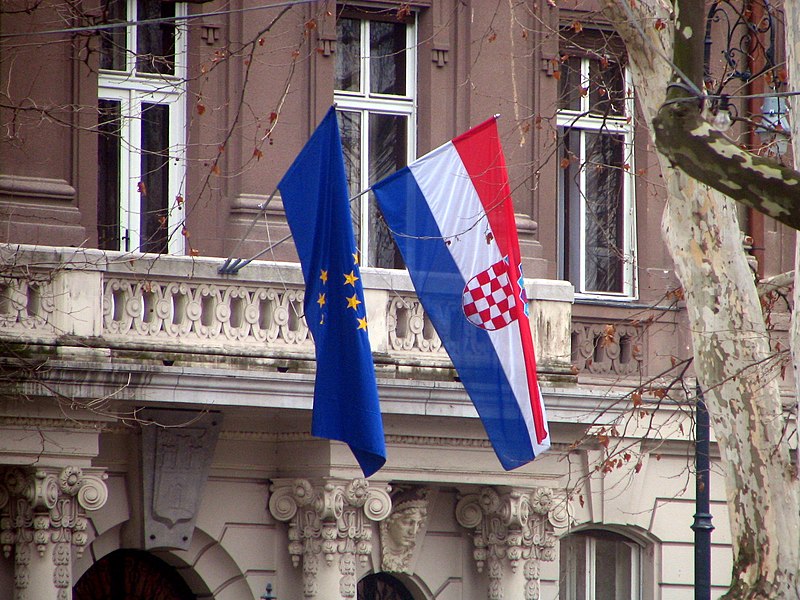A decade after its initial application for membership, Croatia becomes the 28th member of the European Union today. According to EU treaties, membership of the European Union is open to any European state which respects and promotes the values outlined in Article 2, namely "respect for human dignity, freedom, democracy, equality, the rule of law and respect for human rights, including the rights of persons belonging to minorities". Croatia's accession only two decades after the ethnic wars emanating from the breakup of the former Yugosalvia is a testimony to how far the country has come.

Flags of the European Union and Croatia at the Ministry of Foreign affairs
and European Integration, Zagreb (Bogdan Giusca: 2007)
According to Europa, the European Union's website, one of the most visible and positive effects of Croatia's accession will be the end of customs controls at internal EU borders. As well as facilitating freedom of movement between Croatia and its EU neighbours Hungary and Slovenia, this also has implications for intra-European trade.
Wine-producers in Croatia have expressed concerns that the abolition of tariffs will cause cheap European wine to flood into the country and threaten their industry, but it seems that most Croatians agree that the economic benefits of accession outweigh such concerns: ease of access to EU markets is a cause for optimism.
In an interview the the BBC, Ranko Milik, an uban development consultant, said "There are reasons both pro and contra this decision but I believe that in some way that the EU is the destiny of all countries in Europe." While the streets of the Union may not be paved with gold, most commentators agree that the chief benefits of EU accession for Croatia are economic.
And it's not only Croatia itself that will benefit from the facilitation of trade enabled by EU membership: "Emerging Europe" - a recently published report produced by the council of British Chambers of Commerce in Europe in association with UK Trade and Investment - outlines the opportunities for British businesses in light of Croatia's accession. There is £1.8 billion in the 2012-14 EU budget set aside for Croatia which aims primarily to promote the keys sectors of energy and infrastructure, ports and marine, business services and tourism and leisure.
Exporting to Croatia will now be made easier due to the abolition of customs clearance procedures. You can compare prices for exporting to Croatia via the Transglobal Express website.

No comments:
Post a Comment